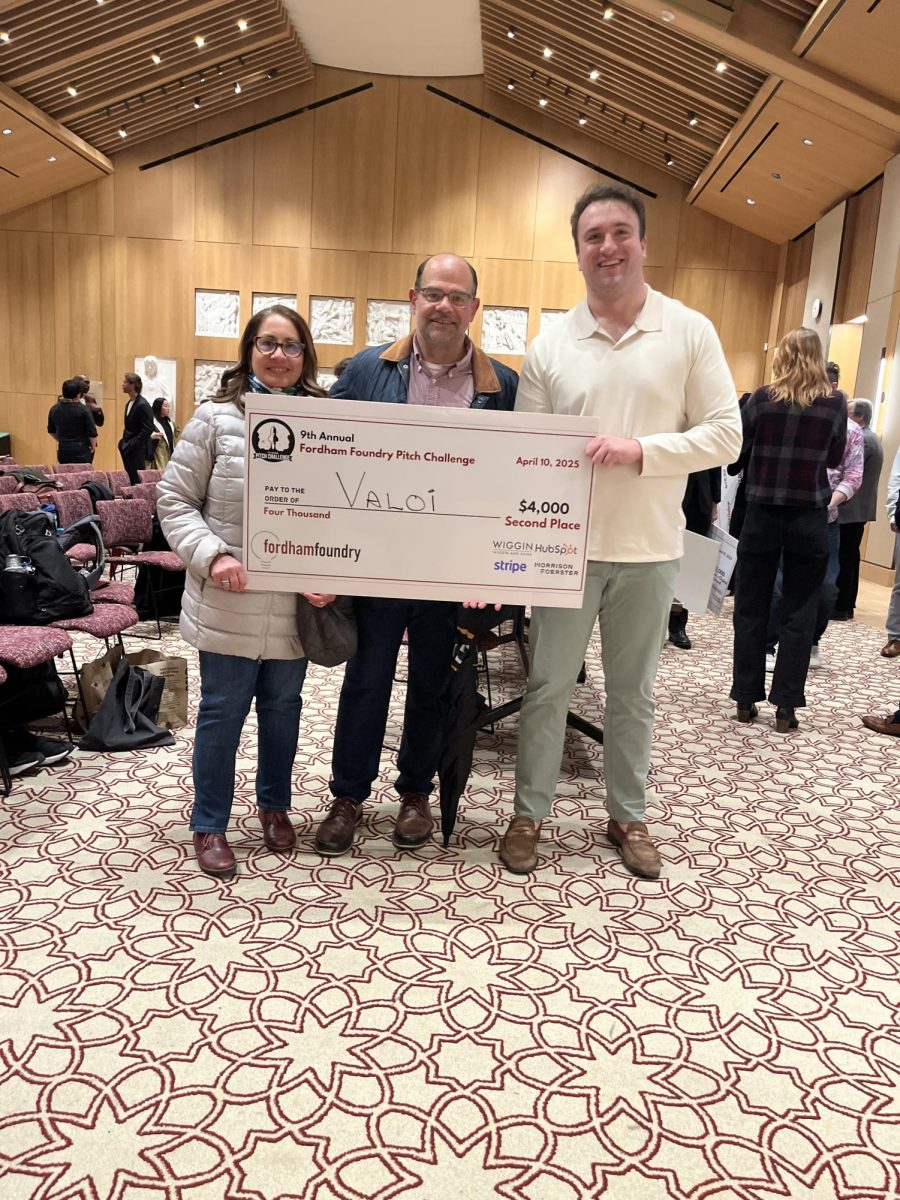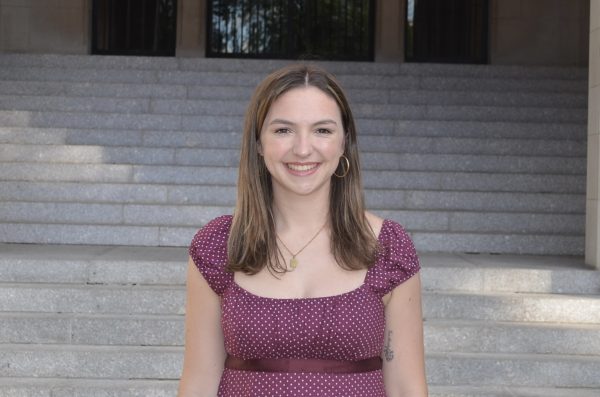Fordham Foundry hosted its ninth annual pitch challenge this month and named five winners among a total of 150 participating teams.
The winners included Logan Valeski, FCRH ’26, who got first, Tristan Nevotne, FCRH ’19, who won second and Nicholas McIntosh, GSAS ’26, who received third. McIntosh also received the People’s Choice Award and Rosario Medina, FCLC ’28, received the Social Impact Award.
Fordham Foundry is a hub that promotes innovation and entrepreneurship. At the event, students, faculty, alumni and community members can learn how to solve business issues and create and grow a business idea. Every year, Fordham Foundry hosts a pitch challenge where current students and alumni can pitch a business idea for the chance to earn funding.
Jenny Mith, community director for Fordham Foundry, led the event for the first time this year after joining the hub in January. She said Fordham Foundry is a great resource for students and that she hopes students can utilize the benefits that the hub and the pitch challenge provide.
“I hope [students] get confidence from knowing that they have a really strong network of support specifically in the foundry but in Fordham more broadly,” Mith said. “I just hope that they get a really positive experience in terms of their exposure to entrepreneurship.”
This year’s challenge followed the same layout as past years, where teams submitted their applications in January and began to prepare their pitches between February and April. There were a total of three rounds of pitches, including one held online and two held in person, according to Nevotne. During each round, teams presented a three-minute pitch to three to four judges. The first round was held on April 1, the second round on April 9 and the third on April 10. Sixteen teams moved on after the first round and eight teams moved on after the second round.
Mith said she was very impressed by all of the pitches this year and the hard work that all of the teams put in.
“I thought [the pitches] were incredible,” Mith said. “They fit so much information into just three minutes. And, you know, a typical pitch for an investor is usually more than ten minutes, and to ask students to talk about their value composition and their business model in three minutes just is a really big ask, and it seems impossible at first, but everybody ends up doing it and everybody is actually really good about saving the time.”
At the end of the final round, Shaun Johnson, associate director of the foundry, announced the winners of the challenge. Valeski received $8,000 for his pitch “Meandering Sheep,” Nevotne received $4,000 for “Valoi,” McIntosh received $3,000 for “LOGOS Prep,” including prize money from his first place win and the People’s Choice Award and Medina received $5,000 for “The Girl Saved by Grace.”
Nevotne participated in the pitch challenge for the first time this year with a pitch for a text-to-video artificial intelligence (AI) service. He said he decided to participate because he thought the challenge was a good way to practice pitching to investors.
“I thought it was a very low-stakes pitch competition that my co-founders and I could dabble to get our feet wet for pitching to investors and learning how to get in front of people who ask hard questions,” Nevotne said.
Nevotne said he will use the money he won from the challenge to offset the cost of a patent for his AI service, which he filed recently. He plans to start pitching his design to investors in June. Nevotne said that while giving the pitch brought him some anxiety, it was an experience that he would highly recommend.
“It was a great experience and I really would encourage people, regardless of their idea of what they think it is, to follow the rules of the foundry and try to show up and be on time, cause you never know, you might get first or second place,” Nevotne said.
Students and alumni who wish to participate in next year’s pitch challenge can apply in January 2026.







































































































































































































